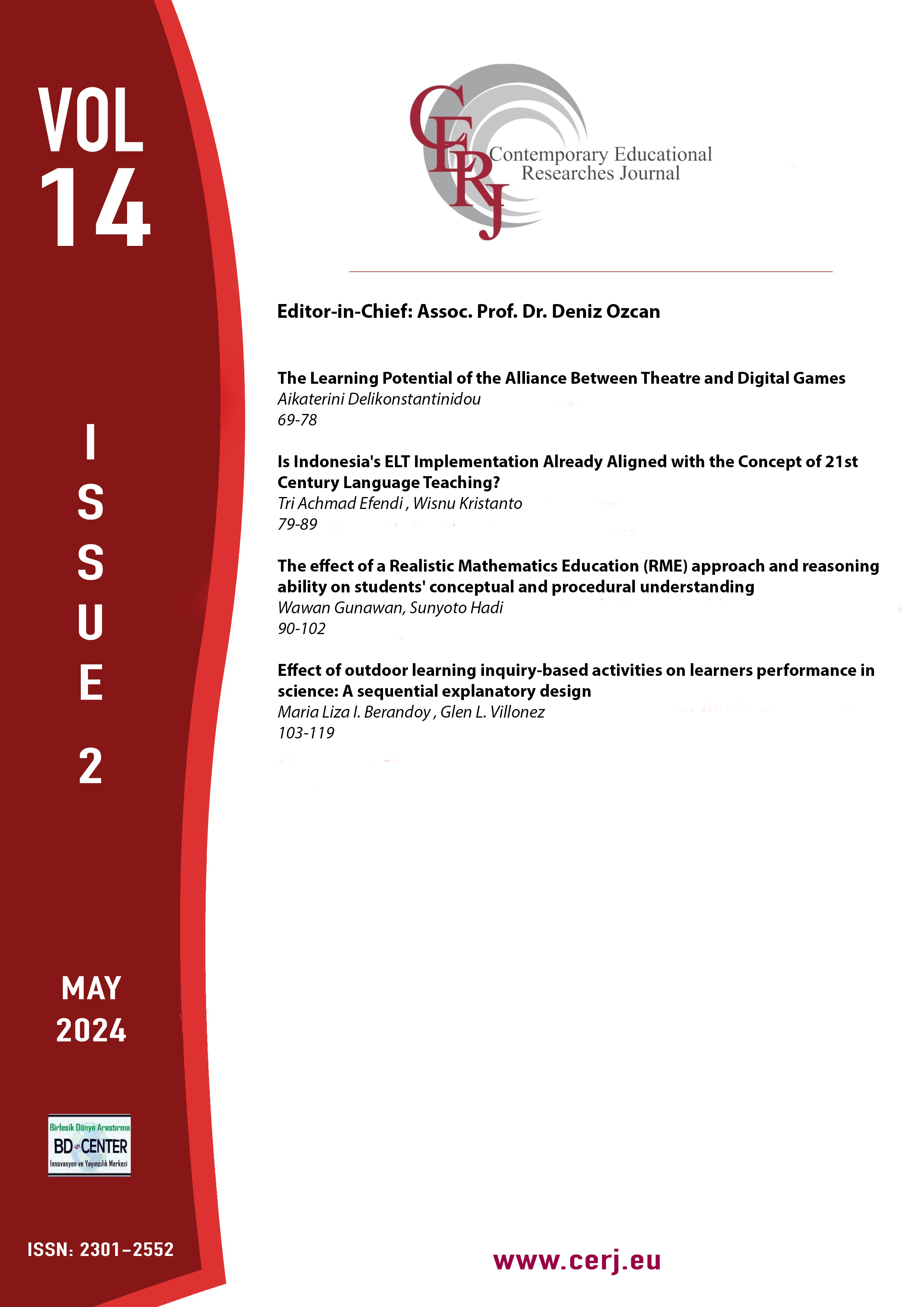Effect of outdoor learning inquiry-based activities on learners performance in science: A sequential explanatory design
Main Article Content
Abstract
This study aimed to determine the effect of Outdoor Learning Inquiry-Based Activities (OLIBA) on the performance of grade 5 students in science. A sequential explanatory mixed methods design was used in the study. The respondents were the 180 grade 5 students from the representative divisions in Region XI. Sixty (60) grade 5 students from each division namely Davao Occidental, Tagum City, and Davao City were considered as respondents. The study utilized two instruments; the standardized test and the researcher-developed interview guide. The statistical tools employed were Mean and standard deviation and Independent Samples t-test. The results revealed the pretest performance of the students in the experimental and control groups in the three divisions was described as fairly satisfactory. Also, the students in the experimental group demonstrated an outstanding performance in the posttest due to the use of OLIBA while the control group registered a very satisfactory performance with the use of the traditional style of teaching. The result of qualitative analysis of participant's experiences in the pretest revealed similarities in content difficulty. After the implementation of OLIBA, both pupils and teachers revealed similarities in knowledge acquired and engagement due to OLIBA.
Keywords: Inquiry-based; learners; outdoor learning; performance; sequential explanatory
Downloads
Article Details

This work is licensed under a Creative Commons Attribution-NonCommercial-NoDerivatives 4.0 International License.
Authors who publish with this journal agree to the following terms:
- Authors retain copyright and grant the journal right of first publication with the work simultaneously licensed under a Creative Commons Attribution License that allows others to share the work with an acknowledgement of the work's authorship and initial publication in this journal.
- Authors are able to enter into separate, additional contractual arrangements for the non-exclusive distribution of the journal's published version of the work (e.g., post it to an institutional repository or publish it in a book), with an acknowledgement of its initial publication in this journal.
- Authors are permitted and encouraged to post their work online (e.g., in institutional repositories or on their website) prior to and during the submission process, as it can lead to productive exchanges, as well as earlier and greater citation of published work (See The Effect of Open Access).
